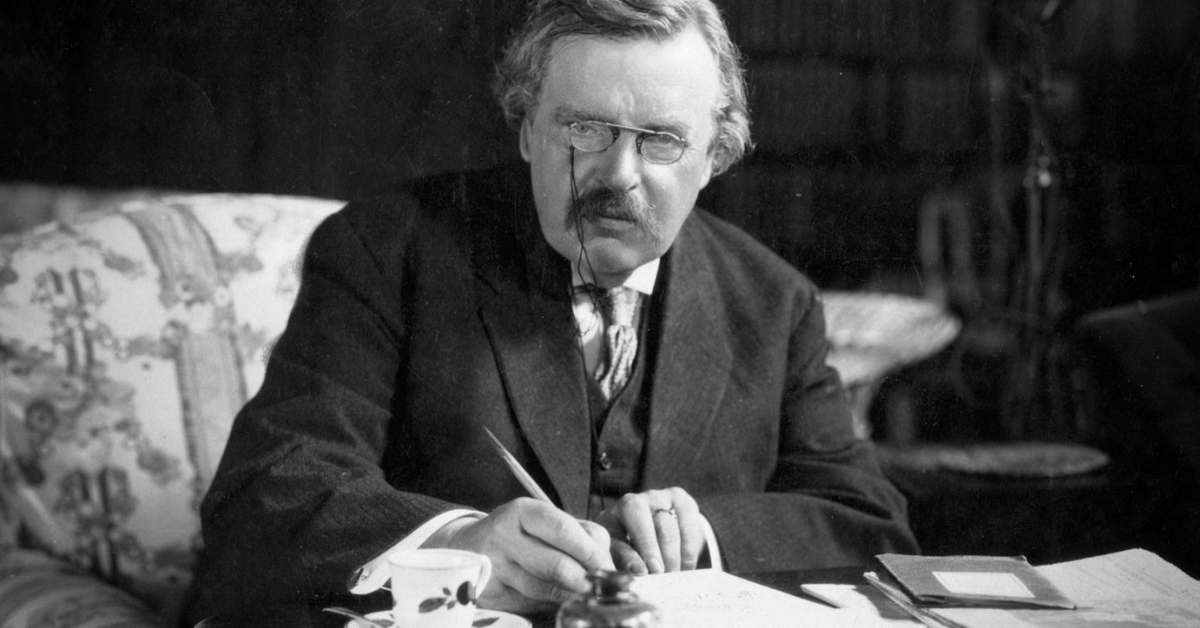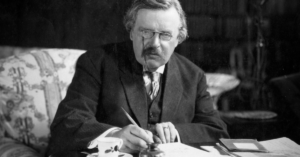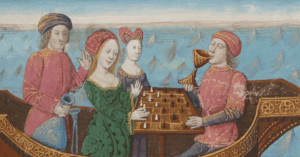

G.K. Chesterton: 10 Surprising Facts You Probably Didn’t Know
Today marks 150 years since the birth of G. K. Chesterton (29 May, 1874). Chesterton was a man of letters— a journalist, novelist, short story writer, poet, and critic— and has sometimes been called “The Apostle of Common Sense”. While you might have heard about his famous witticisms and his Father Brown detective stories, there’s a lot more about Chesterton you may not know…
1. Chesterton is undoubtedly one of the most prolific writers of the 20th century. He wrote around 80 books, several hundred poems, five plays, five novels, and two hundred short stories!
But despite his literary accomplishments, Chesterton saw himself primarily as a journalist. He wrote over 4,000 newspaper essays for the Illustrated London News and the Daily News – that’s the equivalent of writing an essay a day, every day, for 11 years! He also edited his own newspaper, G.K.’s Weekly.
2. You might think detective stories started with Sherlock Holmes, but Chesterton— not Sir Arthur Conan Doyle— is often considered the father of the detective tale.
When the Detection Club was founded in 1928, Chesterton became its first president and served in that capacity until his death in 1936. Chesterton also wrote critical essays about the form and style of detective stories as a genre.
3. Chesterton did not convert to Catholicism until the age of 48, more than a decade after the first Father Brown stories were published.
His wife Frances converted to Catholicism four years after her husband. Near the end of Chesterton’s life, Pope Pius XI made him a Knight Commander of the Papal Order of St. Gregory the Great.
4. Chesterton cut quite an extraordinary figure. would usually walk around wearing a cape and a crumpled hat, with a cigar in his mouth, swordstick in hand, and tiny glasses pinched to the end of his nose.
Chesterton was also quite a large man – he stood at 6 feet 4 inches tall and weighed about 300 pounds (130 kg) – and there are some hilarious stories about Chesterton’s physique. For example, once, during the First World War, a lady in London asked why he was not “out at the Front”, and Chesterton replied, “If you go round to the side, you will see that I am.”
On another occasion he remarked to his friend George Bernard Shaw, “To look at you, anyone would think a famine had struck England.” Shaw retorted, “To look at you, anyone would think you had caused it.”
5. In 1931, the BBC invited Chesterton to give a series of radio talks, which turned out to be very popular. He would often improvise on the scripts, and had his wife and secretary sit with him during the broadcasts, which gave them a very personal feel.
After Chesterton’s death, a BBC official remarked that in another year or so, he would have become “the dominating voice from Broadcasting House.”
6. Chesterton was nominated for the Nobel Prize in Literature in 1935.
7. Chesterton did a lot of his writing in train stations, since he usually missed the train he was supposed to catch.
Once he sent a telegram to his wife, saying, “Am at Market Harborough. Where ought I to be?”
8. Chesterton’s wife, Frances, supported his career by serving as his personal manager.
Frances was also aided by Dorothy Collins, who worked as Chesterton’s secretary and became like a daughter to the couple, who were unable to have children.
9. When commissioned to write a book on St. Thomas Aquinas, Chesterton had Dorothy check out a stack of books on St. Thomas from the library. Chesterton opened the first book, thumbed through it, then proceeded to dictate his own book.
Ettienne Gilson, a renowned Thomistic scholar later said it was “without possible comparison the best book ever written on St. Thomas. Nothing short of genius can account for such an achievement. […T]he few readers who have spent twenty or thirty years in studying St. Thomas… cannot fail to perceive that the so-called ‘wit’ of Chesterton has put their scholarship to shame. He has guessed all that which we had tried to demonstrate, and he has said all that which they were more or less clumsily attempting to express in academic formulas.”
10. Chesterton had friendships with and debated many of the great intellectuals of his time: George Bernard Shaw, H.G. Wells, Bertrand Russell and Clarence Darrow, to name a few.
One of his closest friends was the poet and essayist Hilaire Belloc. George Bernard Shaw coined the name “Chesterbelloc” for their partnership and it stuck!
Chesterton and George Bernard Shaw were also famous friends, although they agreed on hardly anything. According to Chesterton’s autobiography, he and Shaw played cowboys in a silent film that was never released. Over years of intellectual sparring, they maintained an enduring goodwill and respect for each other. George Bernard Shaw said: “The world is not thankful enough for Chesterton.”




